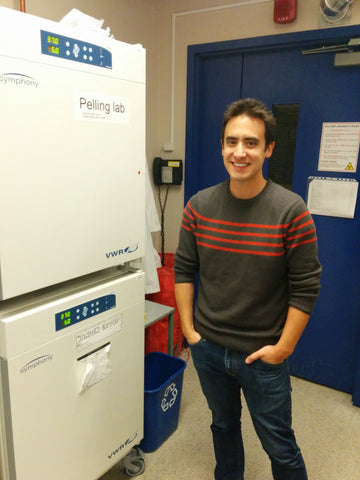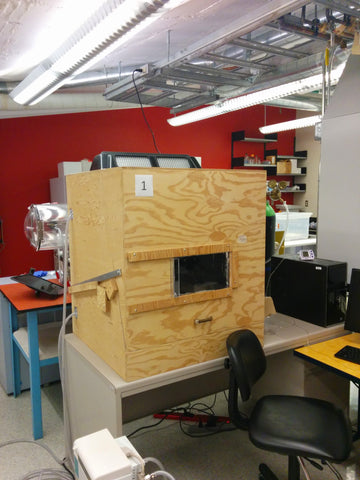- Continue Shopping
- Your Cart is Empty
Meet Ottawa Maker, Andrew Pelling
Andrew Pelling's opening talk at TED Live 2016. Using unprocessed natural cellulose, i.e. plants, as scaffolding for muscle growth is definitely out of the box thinking. Here in Ottawa, we've been lucky enough to watch as this thinking takes shape.
We first met Andrew at the Canada Science and Technology Museum's Biotechnology Days in May 2013. Nanik and I played hooky for the day specifically so we could see his talk, BioHacking: Using Apples, Lego and Twitter to Learn About Cell Physiology and Pathology. We were curious about BioHacking. We know a lot about computers in our house, but not a lot about biology. We were familiar with some of the technology he talked about but the application blew us away. Growing mouse muscle on apple cells? I wasn't sure what to think about that. We also know Pelling Lab from the Ottawa Maker Faires. They were part of the the Mini Maker Faire in 2012, and have exhibited every year since.
Fast forward to this time last year. I had the great opportunity to visit with Andrew and tour his lab. As a member of the Global Young Academy, Andrew was organizing their annual meeting in Ottawa for May 2015. As part of this meeting, he arranged a Science Fair Hack where local makers, including youth, could show their work. We were invited to participate with many of the different groups I work with around the city.

There's no doubt that the work Pelling Lab does is extraordinary. But I am even more impressed with how they do the work. Not only is he a professor and TED Fellow, Andrew Pelling is a maker and a huge supporter of the maker movement here in Ottawa and around the world. That means that some of his lab equipment is home grown.
This set up is for time lapse microscopy. The plywood box is an incubator that controls the temperature and humidity to keep the cells alive. This represents a substantial savings over buying a entire system from a supplier.

That's not only good for Pelling Lab, it's good for everybody. Pelling Lab shares their projects as open source labware hacks. This information is shared around the world through organizations like GYA. It is important that science be accessible for all countries, not only those that can pay for expensive lab equipment. This work has evolved into Spiderwort, "dedicated to developing and providing low cost, open source, DIY kits for the key equipment needed to provoke and enable Science in all economies and environments across the globe". This is fantastic work. I love how Pelling Lab demonstrates the benefits of the maker mindset in an academic setting. I can't wait to see what happens next.
I'm going to close this post with one of my favorite videos. This is a video taken at the GYA Science Hack I mentioned earlier. This was a great event. Part of making is sharing. It is so important for kids to be able to share what they have made. The GYA scientists who attended were an engaged and attentive audience. I am so proud of all of the kids who presented their projects that day!
Highlights of the Science Fair Hack at 5th International Conference for Young Scientists and GYA Annual General Meeting from GYA on Vimeo.

Hari Adnani
March 18, 2016
Wow! That sounds both interesting and incredibly fun.